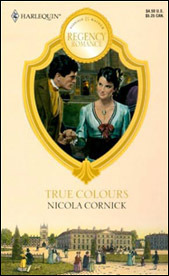That First Book…
Whilst I was away on holiday recently I picked up a novel by thriller writer Harlan Coben that I hadn't read before. It was called Play Dead and I liked the sound of the premise. Harlan Coben is on my auto-read list and this book was jacketed like all his recent bestsellers and so I assumed it was new. It was only when I read the author's introduction that I realised that this was a reprint of Coben's first book. And it was only when I read the reviews on Amazon that I realised that a lot of people had an issue with this, but I'm not going to comment on the book itself, or the reader response, since plenty of other people have done that. What interested me was the "disclaimer" at the beginning of the book. In this foreword Coben suggested that if this was the first of his books that I had ever picked up I should put it down and read something else instead to give me a better taste of his writing. He acknowledged that the book had flaws. But he also said that it held a very special place in his heart.
I guess this sums up pretty well how a lot of us feel about our first books. Most authors improve as they go along; a very few produce a perfectly-written book as their first offering. I  hope I am an improving author. Certainly it's not for the want of trying! When I think of my first book, True Colours, which I started writing when I was 18 and which took me 12 years to complete and get published, I feel a huge affection for it. Yet I also know it's over-written, with a very generous allocation of exclamation marks and three adjectives to every noun. It's also too long. When, a few years ago, I heard that it was going to be reissued, I wanted to re-write it. I probably would have written a disclaimer like Mr Coben's if I had been allowed to do so! And don't even get me started on book number 2…
hope I am an improving author. Certainly it's not for the want of trying! When I think of my first book, True Colours, which I started writing when I was 18 and which took me 12 years to complete and get published, I feel a huge affection for it. Yet I also know it's over-written, with a very generous allocation of exclamation marks and three adjectives to every noun. It's also too long. When, a few years ago, I heard that it was going to be reissued, I wanted to re-write it. I probably would have written a disclaimer like Mr Coben's if I had been allowed to do so! And don't even get me started on book number 2…
When I wrote my first few books I was writing very much on instinct. I'd read a whole library full of Mills & Boon historical romances but I had not consciously analysed how they were constructed or what elements they should include. I didn't know about the Romantic Novelists Association (a pity, because their New Writers' Scheme is a fabulous way to help aspiring authors get published) or the Romance Writers of America, and I hadn't taken any writing courses. I just sat down and wrote the story I wanted to tell. It all seemed pretty straightforward in those days! Mind you, as I said, it took 12 years for the book to be published. The original draft had a highwayman in it…
 I was thinking about True Colours the other day and reflecting that one thing I try to do with my books has not changed since book 1, and that is to include some unusual and interesting element in the background or setting. With True Colours it was the Somerset Cider Wassail. With my current manuscript, Desired, it is the Spa Fields Riots. So some things don't change. True Colours is set at this time of year when traditionally cider makers would toast the apple trees that brought them their prosperity. The ritual has its basis in pagan folk tradition, the word Wassail coming from the Old English greeting Waes Hael meaning "your good health" or "be healthy." It is a plea to the spirits of the orchard to provide a good crop and celebrations usually include a feast with dancing – and plenty of cider! There are also some obscure traditions such as shooting an arrow into the branches of the trees and banging large sticks together very loudly in order to frighten away the evil spirits. All fabulous fun and all featured in True Colours.
I was thinking about True Colours the other day and reflecting that one thing I try to do with my books has not changed since book 1, and that is to include some unusual and interesting element in the background or setting. With True Colours it was the Somerset Cider Wassail. With my current manuscript, Desired, it is the Spa Fields Riots. So some things don't change. True Colours is set at this time of year when traditionally cider makers would toast the apple trees that brought them their prosperity. The ritual has its basis in pagan folk tradition, the word Wassail coming from the Old English greeting Waes Hael meaning "your good health" or "be healthy." It is a plea to the spirits of the orchard to provide a good crop and celebrations usually include a feast with dancing – and plenty of cider! There are also some obscure traditions such as shooting an arrow into the branches of the trees and banging large sticks together very loudly in order to frighten away the evil spirits. All fabulous fun and all featured in True Colours.
Anyway, back to that disclaimer, because the other thing that Mr Coben mentioned was that one of the reasons he still likes Play Dead was because for all its faults it has a great deal of energy and enthusiasm, something which he sometimes wonders if his later books have lost. I could identify with that too. Once you start to learn a bit about writing technique it's very easy to become bogged down in the "right" way to write and all those "rules" – don't head-hop, always start a new scene if you are changing point of view, do this, do that… Then there's the market to worry about too and whether you're writing what a publisher wants, and how to meet your deadline whilst doing all that social networking, and why didn't you have that fabulous idea that another brilliant author has just come up with… It's easy for all that lovely excitement and energy that characterises the first few books to disappear under a barrage of self-doubt and deadlines and it's one of the worst things that can happen because that excitement and enthusiasm is so precious that it's important to nurture it. So maybe a first book isn't always as technically accomplished as later ones but it usually has something worth cherishing, something of the sheer "I'm so excited to be writing and to be published – woo hoo!" feeling to it. Long may that last!
©2011 Nicola Cornick. All Rights Reserved.
.


